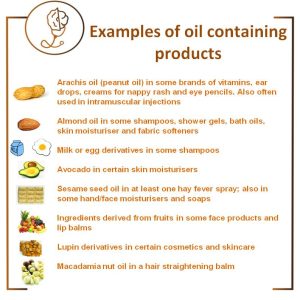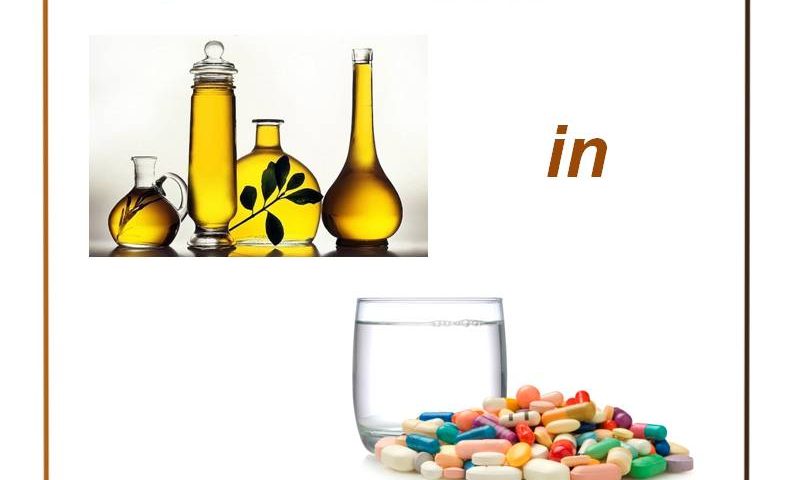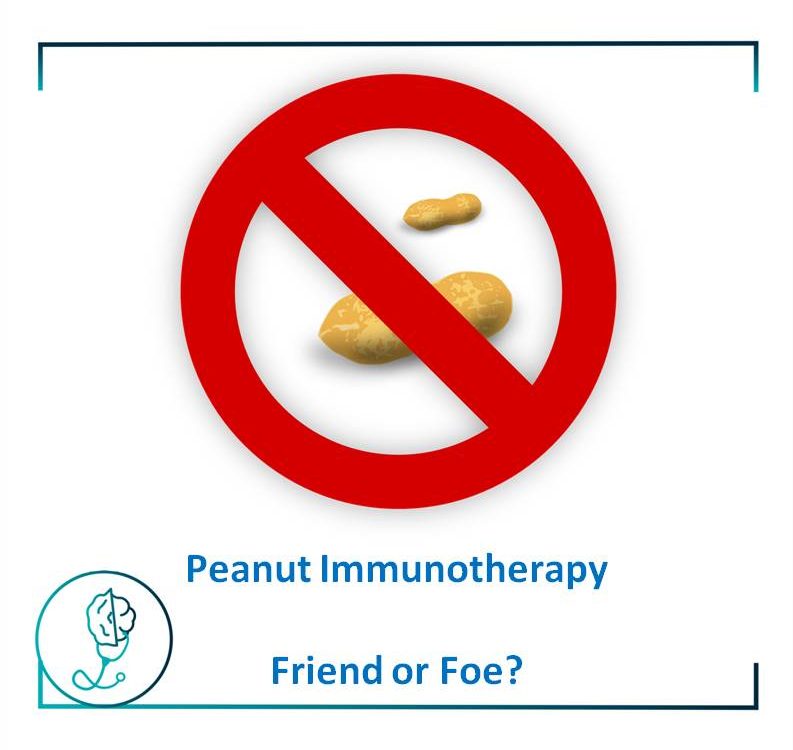Oils in Medication

Adrenaline Auto-Injector and Temperature Control
13/07/2022
Mediterranean diet and atopy
07/01/2023Are you aware of the use of oils, often unrefined, as ingredients in products we use daily?
Started by looking into Becodefence and the information about it being safe for sesame allergy sufferers.
This is a wrong claim as one of the Sesame’s proteins (Ses i 1) is a Storage Protein, 2S Albumin, which is stable to heat and digestion.
So are other medications safe or not?
Actually there is significant variability and this is where we should be more cautious.
(more information on this can be seen at http://emc.medicines.org.uk)
The most common ones containing peanut oil (focusing mainly in Paediatrics) are:
- Cerumol (for removing ear wax)
- Siopel barrier cream
- Zinc and castor oil ointment
- Calamine oily lotion
- Dermovate (topical steroid cream)
- Naseptin cream
- Abidec multivitamin drops – safe as it is refined oil
- Isotretinoin capsules (for treating acne)
- Sustanon (testosterone injection)
- Calogen (high fat calorie supplement)
Regarding Sesame oil (and apart from the example above), it is used in:
- Solvent for intramuscular injections
- Fragrance ingredient
- Skin-conditioning agents
- May be added to hair conditioners and skin masks

But how are oils refined?
- The process involves the use of chemicals (mainly hexane, which is a byproduct of petroleum). They can also be neutralized, filtered or deodorized.
- To make matters worse, the process leads to the making of polyunsaturated fatty acids. Due to its smell, bleach is used to deodorize it.
- Also the oils taken from the seeds oxidize and turn into trans fats.
So, please don’t use refined oils for cooking!
But is it all that bad?
- A study in Sweden looking at children taking vitamin A and D supplementation in either water-soluble form or in arachis (peanut) oil for at least the first year of life did have some interesting results.
- The ones taking the vitamins in peanut oil had lower incidence of peanut allergy.
The bottom line is:
- Read labels and if in doubt do not take medication.
- See if the oil is refined or unrefined.
- Ask your GP, Paediatrician or Allergist if the medication is safe for you or your child


